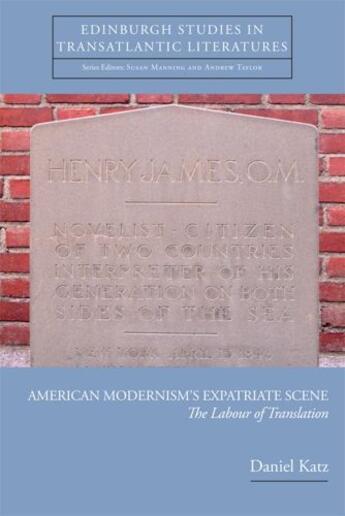-
Nombre de pages : (-)
-
Collection :
(-)
-
Genre :
(-)
-
Thème :
Non attribué
-
Prix littéraire(s) :
(-)
Résumé:
This study takes as its point of departure an essential premise: that the widespread phenomenon of expatriation in American modernism is less a flight from the homeland than a dialectical return to it, but one which renders uncanny all tropes of familiarity and immediacy which 'fatherlands' and... Voir plus
This study takes as its point of departure an essential premise: that the widespread phenomenon of expatriation in American modernism is less a flight from the homeland than a dialectical return to it, but one which renders uncanny all tropes of familiarity and immediacy which 'fatherlands' and 'mother tongues' are traditionally seen as providing. In this framework, similarly totalising notions of cultural authenticity are seen to govern both exoticist mystification and 'nativist' obsessions with the purity of the 'mother tongue.' At the same time, cosmopolitanism, translation, and multilingualism become often eroticised tropes of violation of this model, and in consequence, simultaneously courted and abhorred, in a movement which, if crystallised in expatriate modernism, continued to make its presence felt beyond.
Beginning with the late work of Henry James, this book goes on to examine at length Ezra Pound and Gertrude Stein, to conclude with the uncanny regionalism of mid-century San Francisco Renaissance poet Jack Spicer, and the deterritorialised aesthetic of Spicer's peer, John Ashbery. Through an emphasis on modernism as a space of generalized interference, the practice and trope of translation emerges as central to all of the writers concerned, while the book remains in constant dialogue with key recent works on transnationalism, transatlanticism, and modernism.
Donner votre avis










